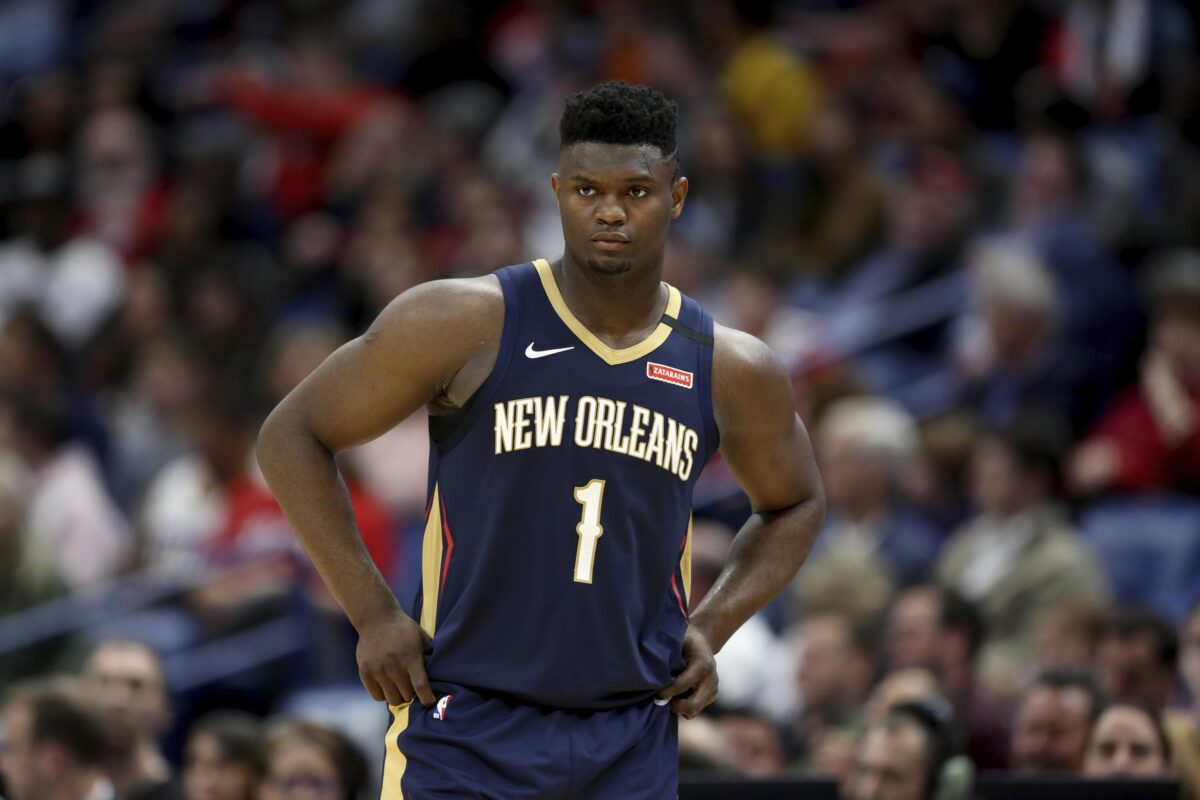A new filing has emerged in the ongoing lawsuit involving former Duke phenom and current NBA star Zion Williamson and his former marketing agent Gina Ford and Prime Sports Marketing.
The recent filings in Bowen vs. Adidas allege Williamson and/or his family received improper benefits from Chris Rivers, an Adidas Representative. Payments were supposedly made between November 2016 through September 2017 by Rivers to Zion’s stepfather, Lee Anderson, on Zion’s behalf. The motion continues to list Williamson receiving personal security services during his high school basketball games, as well as airfare purchases for Zion’s family members.
Zion and his former marketing agency have been in a persisting legal battle with multiple counterclaims and allegations. The lawsuit originated when Williamson filed in North Carolina in June 2019 to terminate his five-year contract with Prime Sports Marketing after moving to Creative Artists Agency. A North Carolina federal judge voided Williamson’s marketing agreement because it failed to meet the requirements of North Carolina’s Uniform Athlete Agents Act. Not long following, Ford filed a suit against Williamson and his new agency, CAA, seeking $100 million in damages for breach of contract. Ford and her attorney argue Zion’s new representation should not be able to benefit from Ford’s significant work for Williamson. The suit by Ford and Prime Sports was filed in Florida, which sparked much debate over jurisdiction.
Williamson’s strongest defense against Ford’s suit was that his former marketing agents were not properly licensed in North Carolina and therefore excluded from receiving any commissions earned through Zion. This is where the new filing comes into play. If Zion had received improper benefits before enrolling or while at Duke, Zion would technically be considered to have forgone his amateurism and “student-athlete” status. Thus, Ford and Prime Sports would not have been required to be licensed in North Carolina to sign Williamson to a representation agreement. This filing comes after their first attempt at attacking Zion’s eligibility, where they claimed Williamson’s family accepted a $400,000 payment prior to his lone season with the Blue Devils.
There has long been speculation on college powerhouses soliciting star players to commit to their programs through illegitimate means. There have even been instances where such speculations were proven accurate. For example, the NCAA men’s basketball scandal in 2017-18, where coaches of several competitive Division I schools were involved in bribery, money laundering, and wire fraud. LeBron James was asked in an interview his thoughts on the scandal and if he had any remarks on some potential offers he was made coming out of high school. LeBron laughed and said, “…me and my mom [were] poor, I’ll tell you that. They expected me to start stepping foot on a college campus and not go to the NBA; and we weren’t going to be poor for long… that’s a fact.”
Are improper recruitment payments inherent to the NCAA? Maybe. Is there any truth behind the allegations against Zion? According to the court so far, there is not.
